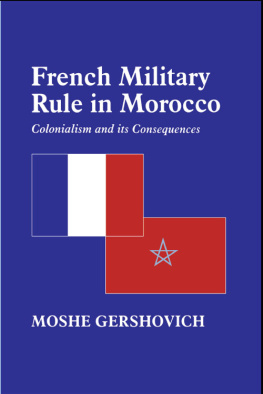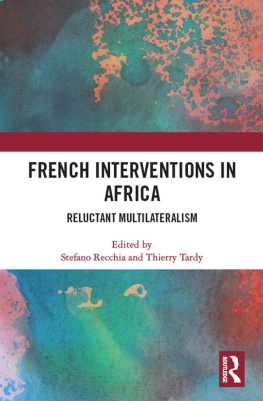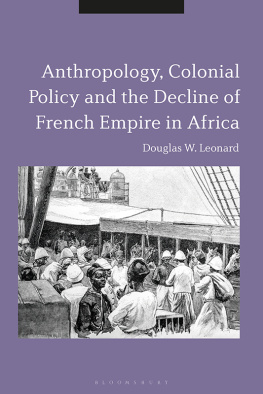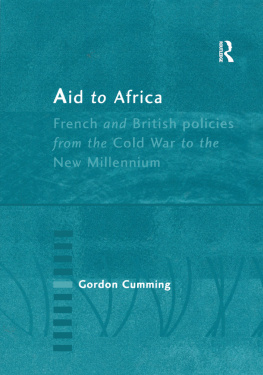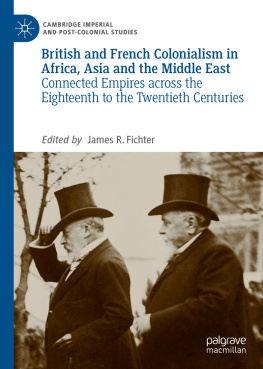FOREIGN POLICY, SECURITY AND STRATEGIC STUDIES
EDITORS: ALEX MACLEOD AND CHARLES-PHILIPPE DAVID
The Foreign Policy, Security and Strategic Studies Series seeks to promote analysis of the transformation and adaptation of foreign and security policies in the post Cold War era. The series welcomes manuscripts offering innovative interpretations or new theoretical approaches to these questions, whether dealing with specific strategic or policy issues or with the evolving concept of security itself.
Canada, Latin America, and the New Internationalism
A Foreign Policy Analysis, 19681990
Brian J.R. Stevenson
Power vs. Prudence
Why Nations Forgo Nuclear Weapons
T.V. Paul
From Peacekeeping to Peacemaking
Canadas Response to the Yugoslav Crisis
Nicholas Gammer
Canadian Policy toward Krushchevs Soviet Union
Jamie Glazov
The Revolution in Military Affairs
Implications for Canada and NATO
Elinor Sloan
Inauspicious Beginings
Principal Powers and International Security Institutions
after the Cold War, 19891999
Edited by Onnig Beylerian and Jacques Lvesque
Security and Defence in the Terrorist Era
Canada and North America
Elinor Sloan
Towards a Francophone Community
Canadas Relations with France and French Africa, 19451968
Robin S. Gendron
PROCEEDINGS
The Future of NATO
Enlargement, Russia, and European Security
Edited by Charles-Philippe David and Jacques Lvesque
McGill-Queens University Press 2006
ISBN-13: 978-0-7735-3033-1 ISBN-10: 0-7735-3033-9
Legal deposit second quarter 2006
Bibliothque nationale du Qubec
Printed in Canada on acid-free paper that is 100% ancient forest free (100% post-consumer recycled), processed chlorine free.
This book has been published with the help of a grant from the Canadian Federation for the Humanities and Social Sciences, through the Aid to Scholarly Publications Programme, using funds provided by the Social Sciences and Humanities Research Council of Canada.
McGill-Queens University Press acknowledges the support of the Canada Council for the Arts for our publishing program. We also acknowledge the financial support of the Government of Canada through the Book Publishing Industry Development Program (BPIDP) for our publishing activities.
Library and Archives Canada Cataloguing in Publication
Gendron, Robin Stewart, 1972
Towards a Francophone Community: Canadas relations
with France and French Africa, 19451968 / Robin S. Gendron.
(Foreign policy, security and strategic studies)
The Centre for Security and Foreign Policy Studies and the
Raoul-Dandurand Chair of Strategic and Diplomatic Studies
Includes bibliographical references and index.
ISBN-13: 978-0-7735-3033-1 ISBN-10: 0-7735-3033-9
1. Canada Foreign relations Africa, French-speaking. 2. Africa, French
speaking Foreign relations Canada. 3. Canada Foreign relations
France. 4. France Foreign relations Canada. 5. Canada Foreign
relations 1945- 6. France Foreign relations 19451958. 7. France
Foreign relations 19581969. I. Universit du Qubec Montral. Centre
dtudes des politiques trangres et de scurit. II. Raoul-Dandurand Chair
of Strategic and Diplomatic Studies. III. Title. IV. Series.
FC244.F72G45 2006 327.7106091754109045 C2005-906814-0
This book was typeset by Interscript in 10/13 Sabon.
Contents
Acknowledgments
Over the years, many people have contributed generously of their time and their expertise to help bring this book to publication. The guidance and diligence of the archivists and staff at the Archives of the Ministry of Foreign Affairs of France, the National Archives of Quebec, and what is now the Library and Archives Canada greatly facilitated the research involved. Father Jacques Monets permission to use Jules Lgers papers is gratefully acknowledged.
I have benefited from the input and criticism of numerous colleagues, most notably David Bercuson, who supervised the dissertation from which this book sprang and whose support since has been remarkable. In addition, Don Smith, Doug Francis, Don Barry, Steven Lee, Steve Randall, Duane Thomson, Sahadeo Basdeo, Kim Munholland, Ged Martin, Galen Perras, Serge Bernier, Norman Hillmer, Paul Marsden, Raymond Blake, Melanie Methot, David Campbell, Chris Bell, and many others have commented on parts of the book, critiqued the portions of it that were presented at conferences, or simply shared their wisdom, their knowledge, and their friendship with me. The members and former members of the Historical Section at Foreign Affairs Canada John Hilliker, Greg Donaghy, Hector Mackenzie, and Mary Halloran have been especially helpful over the years. During a nomadic life over the past several years, I have also appreciated the support and the encouragement of Jim Hull and Lynda Wilson at Okanagan University College; Robert Schneider, Paul Stone, and Bert Kreitlow at the University of Minnesota; and John Shoup, Eric Ross, and Carlos Jaques at Al Akhawayn University. The contributions of all of these individuals, as well as those of the editorial staff and the anonymous readers at McGill-Queens University Press, have made this book better. The flaws that remain are my responsibility alone.
Portions of were published in the International Journal in 2001. I thank these journals for permission to republish these materials. Similarly, this book has been published with the help of a grant from the Canadian Federation for the Humanities and Social Sciences, through the Aid to Scholarly Publications Programme, using funds provided by the Social Sciences and Humanities Research Council of Canada.
Finally, I have to acknowledge the tremendous emotional and other forms of support given to me by my family. My parents, Barb and Frank Clumpus and Stewart and Jo-Anne Gendron, my sisters Jodi Hayami and Jani Edwards, their families, and the Morris family have been there through it all, easing the process and understanding the preoccupations that come with this type of project. Most of all, my wife, Kelly Morris, has been a constant source of encouragement and assistance without which none of this would have been possible. This book is dedicated, with love, to her.
Towards a Francophone Community
Introduction
In January 1968, Quebecs Minister of Education accepted an invitation to attend a meeting in Libreville, Gabon, between the ministers of education of France and of the French African states. What was remarkable about Jean-Guy Cardinals participation in this meeting was the fact that the invitation had been addressed to the government of Quebec rather than to, or through, the federal government of Canada. Canadas government had not been invited. This represented a dramatic escalation in a dispute, which had been building since the early 1960s, between Canada and Quebec over their respective responsibilities for foreign affairs. It also led to the first public incident between them over Quebecs desire to represent itself within the emerging community of French-speaking states known as la francophonie. This organization, dedicated to French language and culture, was gradually created between 1968 and 1971 at a series of international meetings in Libreville, Kinshasa, Paris, and Niamey. The governments of Canada and Quebec competed fiercely to ensure that they each obtained the right to represent French Canadians within it.
This was not just a domestic dispute between them, however. To a large extent, both Canada and Quebec relied upon the governments of other French-speaking states to adjudicate and further their respective claims to membership in la francophonie. Support from France provided a significant boost to Quebecs ambitions; it also forced the Canadian government to depend on the French-speaking countries of Africa to endorse Canadas membership in the international francophone community and, thereby, uphold federal responsibility for foreign affairs in Canada and the federal governments ability to represent all Canadians internationally. For a period during the late 1960s and early 1970s, therefore, the countries of French Africa occupied a central place in Canadas foreign relations; with their help the Canadian government succeeded in preventing Quebec from fully realizing its international ambitions. At the same time, however, the precariousness of Canadas relations with these countries had almost enabled Quebec to displace the Canadian government as the representative of French Canadians within the international community of French-speaking states.
Next page


